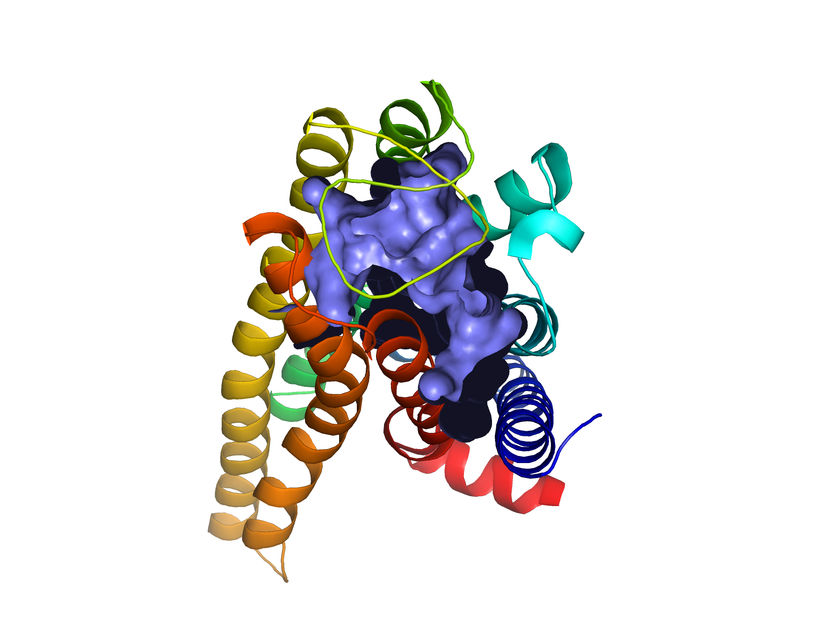New findings on the effect of Epsom salt
Epsom salt receptor identified
A team of scientists headed by Maik Behrens from the Leibniz-Institute for Food Systems Biology at the Technical University of Munich has identified the receptor responsible for the bitter taste of various salts. These include medically used Epsom salt. The discovery helps to elucidate the physiological mechanisms by which Epsom salt affects the heart or gut.

Model presentation of the bitter receptor TAS2R7
Dr. Antonella Di Pizio/Leibniz-LSB@TUM
Salt with physiological effects
Magnesium sulfate, also known as hair salt or Epsom salt, is probably the best-known bitter-tasting salt. The naturally occurring mineral is named after the British city of Epsom, where it was already extracted from spring water in 1697. Even today, it has its place in medicine, for example, to treat constipation or certain cardiac arrhythmias.
Receptor for magnesium, manganese and iron ions
Maik Behrens and his team have now succeeded, with the help of a cellular test system, in identifying a receptor that reacts to Epsom salt or to salts containing magnesium or divalent manganese and iron ions. It is the bitter receptor TAS2R7, one of the 25 different bitter receptor types that people possess.
More than just taste sensors
As gatekeepers in the mouth, bitterness sensors warn against the ingestion of potentially toxic substances. In addition to phytochemicals such as caffeine these also include drugs such as chlorphenamine (antihistamine). Another group of substances represent certain salts, which can lead to significant side effects when consumed in too high doses.
Recent studies indicate that the receptors not only act as taste sensors, but also mediate physiological effects of bitter substances. Thus, bitter receptors are found in organs such as the heart or intestine. "Interestingly, both organs respond to the supply of magnesium salts," says study leader Behrens. An overdose of magnesium salts has been shown to lead to a drop in blood pressure, cardiac arrest, severe diarrhea and vomiting, the researcher said. However, the molecular mechanisms underlying the respective physiological reactions are still not clear to date.
The researchers are convinced that the discovery of the Epsom salt receptor will help to better understand the physiological effects of minerals and to develop new therapeutics for, for example, heart disease.
Original publication
Other news from the department science

Get the life science industry in your inbox
By submitting this form you agree that LUMITOS AG will send you the newsletter(s) selected above by email. Your data will not be passed on to third parties. Your data will be stored and processed in accordance with our data protection regulations. LUMITOS may contact you by email for the purpose of advertising or market and opinion surveys. You can revoke your consent at any time without giving reasons to LUMITOS AG, Ernst-Augustin-Str. 2, 12489 Berlin, Germany or by e-mail at revoke@lumitos.com with effect for the future. In addition, each email contains a link to unsubscribe from the corresponding newsletter.
Most read news
More news from our other portals
Last viewed contents
DiagnoSwiss and bioMérieux to development and use DiagnoSwiss electrochemical microchips in human in vitro diagnostics
Bone_sialoprotein
Crotalus_stejnegeri
Terpenoid
Implantable_Gastric_Stimulation
Hatchtech appoints Tim Waugh as CEO



















































